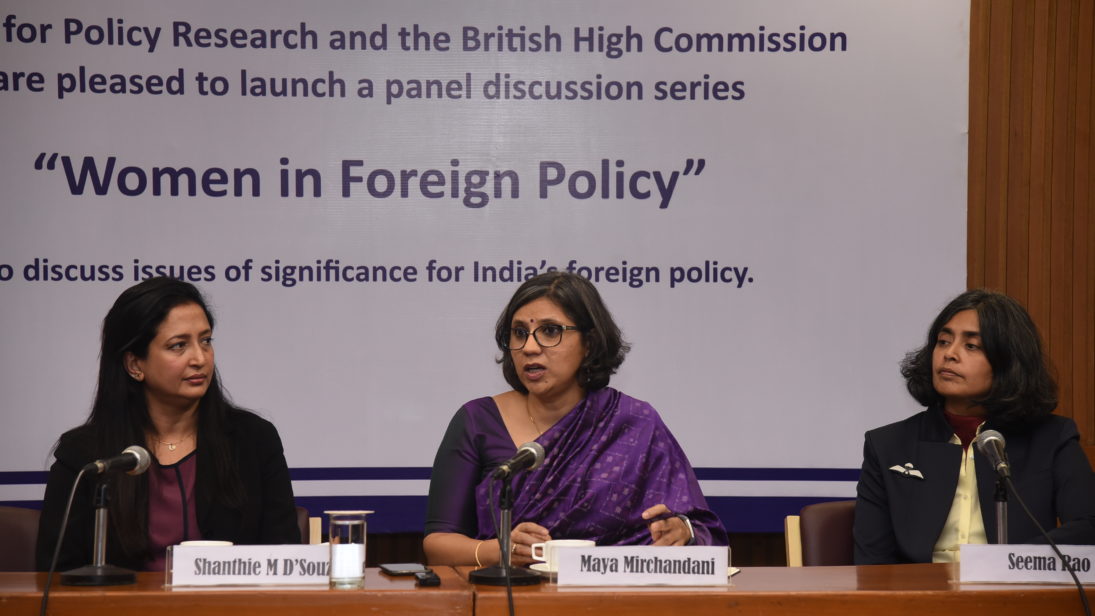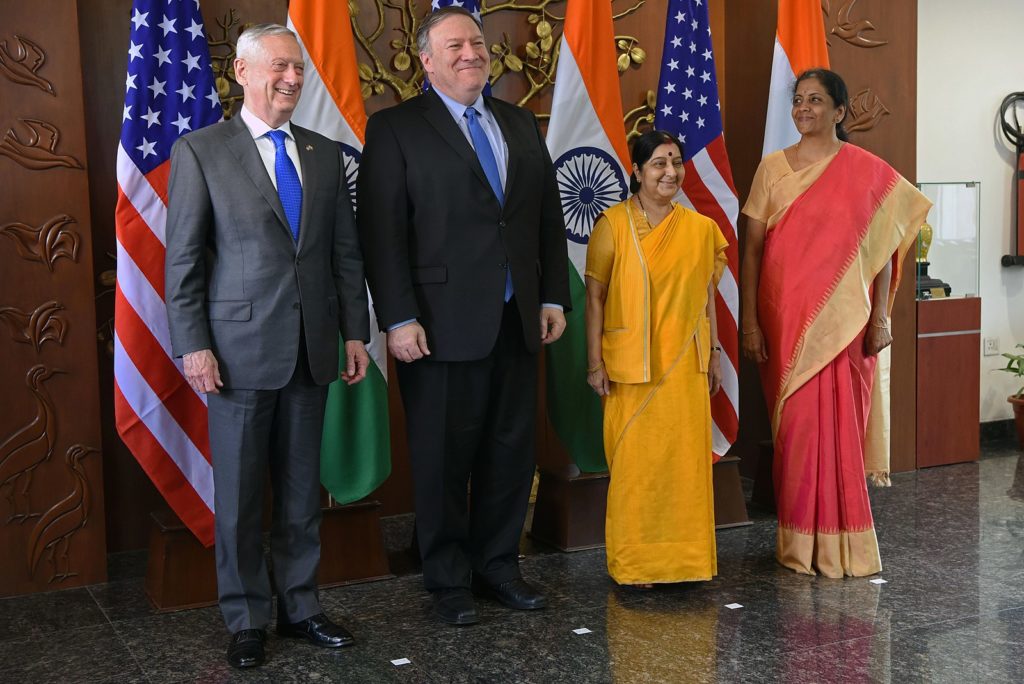
Since mid-2020, India’s defensive responses to China’s activities along its borders— including recent flare-ups in Ladakh—have characterized India’s foreign policy. This is just one example of how responding to immediate security challenges has formed the cornerstone of India’s foreign policy, a method to protect, preserve and advance India’s national interests and maintain its territorial integrity. However, India has experienced several limitations and challenges in advancing its foreign policy and diplomatic goals due to this militarized focus and concerns from the international community over its potential uses of force, which have hindered India’s role on a global stage.
A Feminist Foreign Policy (FFP), which offers an innovative, rights-based approach across all auspices of a nation’s foreign policy, could add much-needed dynamism to Indian diplomacy and promote a more positive image of the country. FFP is centered on improving the social and economic well-being of marginalized individuals and communities. Adopting FFP would enable India to gain recognition as a global power by building a stronger commitment to peace, supporting more inclusive policies, and addressing concerns about gender-based discrimination from the international community.
Why the Need for Change?
Many nations—especially those with a great power status—worry that India, if recognized as a rising power, could threaten international peace and security because of its over-reliance on military capability and its nuclear capacity. These concerns are also grounded in India’s prolonged focus on hard security issues, poor human development indicators, marginalization of minorities and women, and caste discrimination.
Adopting FFP would enable India to gain recognition as a global power by building a stronger commitment to peace, supporting more inclusive policies, and addressing concerns about gender-based discrimination from the international community.
India has tried its best to dispel these notions and has expressed its desire for recognition as a peaceful rising power on many occasions. For instance, India has adopted the policy of military self-restraint even in the face of provocative cross-border terrorism, including after the 2008 Mumbai terrorist attacks, where instead of responding militarily, India focused on building relations with the international community to shape global counter-terrorism strategy. Yet, the international community remains weary of India’s prior hard security activities.
These apprehensions obstruct India’s rising power ambitions and stifle its voice in the international system. To rebuild internally and better garner the trust of the international community, India must undertake an agenda that demonstrates a true commitment to peace by revolutionizing its foreign policy structures. At the same time, India also must improve its performance across several indicators—such as human rights and gender equality—that are important in evaluating the overall development of a country. Improvements in these spheres can help make Indian foreign policy more holistic, rather than narrowly preoccupied with security challenges.
If India wants to be seen as an emerging power, it must re-direct its diplomacy efforts away from a narrowly military foreign policy and commit to policies that elevate marginalized communities. FFP offers an intersectional rethinking of security from the viewpoint of the most vulnerable, helping shift policy from an over-reliance on force, violence, and domination.
How can FFP help?
Given that FFP is focused on “ensuring the well-being of people and invok[ing] processes of self-reflection regarding foreign policy’s hierarchical global systems,” it can enable a more positive image of India while facilitating the repositioning of its foreign policy from traditional security responses. Such a shift from the conventional militarized response towards a more humanized response will also place an emphasis on the experiences and agency of vulnerable groups, developing more inclusive policies.

A FFP goes hand-in-hand with development in India and could improve India’s performance across indicators like gender equality, humanitarian rights, and social justice—all of which must precede India’s claims to rising-power status. By placing the issue of human rights at the heart of discussions and focusing on the promotion of inclusive growth for all individuals, FFP serves as a tool to repair India’s dwindling global reputation, especially concerns surrounding its poor human rights record and democratic backsliding.
Additionally, FFP calls for gender parity in political representation and leadership, which is important for revolutionizing the masculinized foreign policy structures in India to ensure that diverse perspectives are included in policy processes. A FFP would provide women with enhanced opportunities and capacities to voice their opinions through decision-making roles. This could—many have argued—result in a more peace-conscious foreign policy. As Margot Wallstrom—the force behind Sweden’s FFP—famously said, “More women means more peace. If women are around the table when peace deals are negotiated, then those peace agreements will last longer.”
Finally, the FFP strategy could assist in assuaging fears about India’s rise to power and its potential pursuit of force against its neighbors and other countries. The FFP acknowledges the link between human rights, gender, peace and security: India committing to a FFP conveys a message to the international community that a rising India is wary of seeking hegemony or relying on military force to accomplish its foreign policy agenda, as have past rising powers.
India should continue to demonstrate a stronger commitment towards the values of FFP, which will not only bring about changes in its foreign policy mechanisms but also serve as an important starting point to re-examine India’s domestic policies.
The FFP has proven an effective tool for improving foreign policy reputations in the past, including when Mexico became the first country to adopt a FFP in the Global South in 2020 with an aim to reduce structural differences, gender gaps, and inequalities. This new commitment was not only lauded by the international community but has also assisted Mexico in developing equitable policies and dismantling systemic economic and social barriers to equality. If India follows Mexico’s guide and embraces the concept of FFP, it could set itself on a clearer path towards addressing inequality and development indicators at home while orienting its foreign policy towards human rights and gender equality.
Conclusion
India should continue to demonstrate a stronger commitment towards the values of FFP, which will not only bring about changes in its foreign policy mechanisms but also serve as an important starting point to re-examine India’s domestic policies. Given that a country’s foreign and domestic policies go hand-in-hand, the addition of FFP in India’s policy outcomes could help India offset democratic backsliding and bolster its development. This would all put it in a better position globally, enhancing its ability to influence other countries through a balance of hard and soft power. And while skeptics may decry FFP as insufficiently efficient or effective for hard security issues, FFP carries significant weight in both the hard and soft security arenas: in valuing more peaceful outcomes, it projects an important role for India on the global stage amidst jockeying great powers.
***


